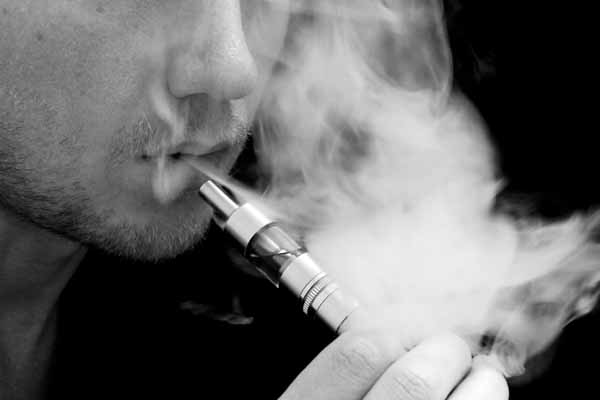
With the recent rise in severe pulmonary illness linked to vaping and e-cigarettes, state lawmakers on Tuesday took steps to curb use of those products, particularly among children and teenagers.
The Senate Health and Human Services Committee heard about the dangers of vaping from several health professionals, including Houston pediatrician Lindy McGee, MD, who submitted written testimony on behalf of the Texas Medical Association, the Texas Pediatric Society, and other public health organizations.
“While we had been lauding ourselves for the decreasing rates of smoking in teens over the past 20 years, the tobacco industry had been actively recruiting a new generation of nicotine addicts right under our noses,” Dr. Lindy told the committee, which includes Sen. Donna Campbell, MD (R-New Braunfels). “A recent study found that 70% of youth ages 12-17 reported exposure to e-cigarette marketing within the last month.”
Earlier this month, Lt. Gov. Dan Patrick charged the senate committee with examining the public health concerns stemming from the rise in e-cigarette use and vaping, especially among minors.
In Texas, 263 confirmed and possible cases of EVALI, or e-cigarette or vaping product use-associated lung injury, have been reported as of Nov. 26, according to the Department of State Health Services (DSHS). That's up from 222 cases, including 91 confirmed cases, reported Nov. 4.
Of the 203 confirmed or probable cases in Texas:
- 22% are younger than 18 years of age; and
- Cases range in age from 13 through 75 years old, with a median age of 22 years.
Nationwide, 2,290 EVALI cases have been reported from 49 states (except Alaska), the District of Columbia, and one U.S. territory, the Centers for Disease Control and Prevention (CDC) said, as of Nov. 20. Forty-seven deaths have been confirmed in 24 states.
Thanks to TMA advocacy, Texas lawmakers this year passed a law that raises the minimum age to buy tobacco and vaping products from 18 to 21 (except for military personnel). The law took effect Sept. 1.
On Tuesday, Dr. McGee urged lawmakers to build on that success by adopting “strong, evidence-based public health policies” such as:
- Increasing taxes on conventional cigarettes by at least $1 per pack and imposing an excise tax on e-cigarettes that achieves parity with combustible cigarettes. That includes using a significant portion of tax revenue for additional evidence-based tobacco cessation programming at DSHS and retail enforcement activities;
- Banning all characterizing flavors, including menthol, in tobacco products and e-cigarettes; and
- Requiring all e-cigarette retailers to obtain a permit to sell e-cigarette products, similar to the current tobacco retailer permit.
“As a pediatrician, I can only do so much counseling during the brief time I get with my adolescent patients,” Dr. McGee said. “We count on leaders such as yourselves to help us protect our children from harmful products.”
Photo: Creative Commons